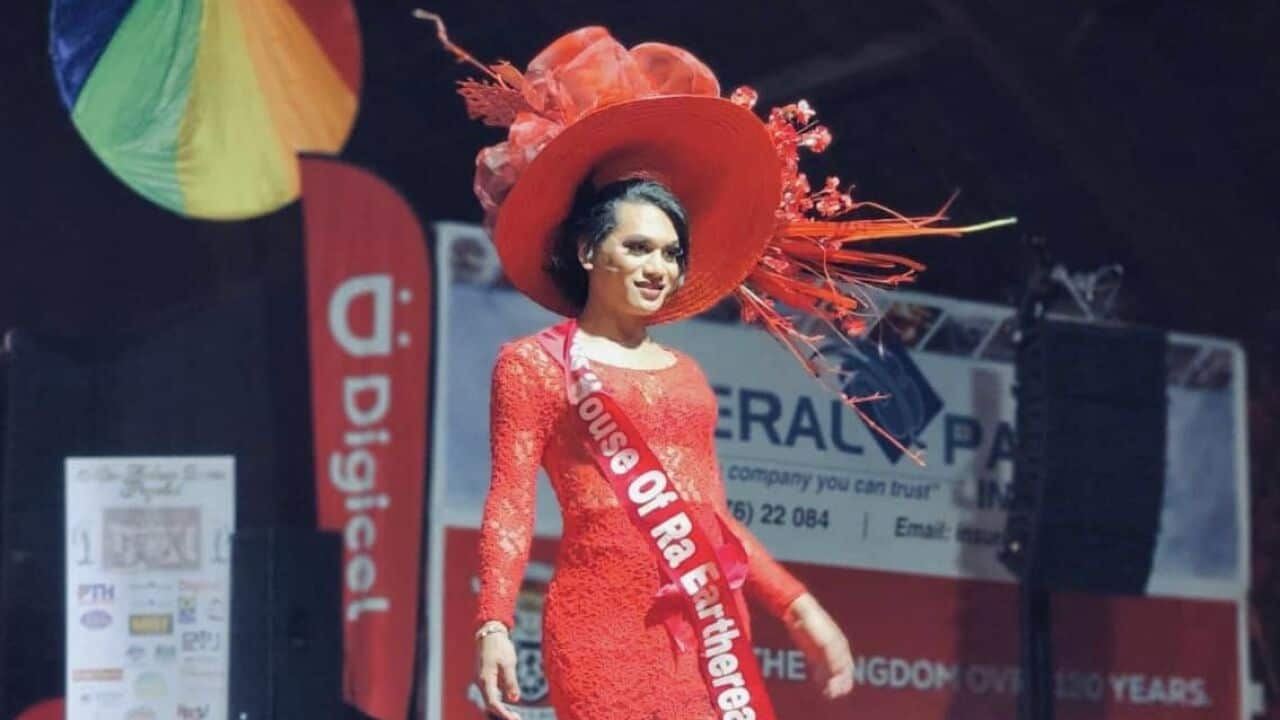Key Points
- Grace Hyland says her image was used without permission in a Channel 7 program about transgender young people.
- Channel 7 billed the program as "the most controversial story of the year".
- Transgender youth organisation Transcend said the reporting was inaccurate and dangerous.
Channel 7 has apologised for using photos of a woman without permission in an episode of its Spotlight program about transgender young people.
Grace Hyland, a transgender woman, was featured in a promotion that billed the program as "the most controversial story of the year", and alleged that children were being pressured to "change from boy to girl or girl to boy".
After Hyland spoke out about her images being used to promote the episode, which she wasn't a part of, Channel 7 deleted videos featuring Hyland, and uploaded new adverts that didn't feature her.
The show claimed thousands of children as young as 12 are transitioning and regretting it, and being pressured to do so by activists and medical professionals, without citing recent local data on this.
Hyland said "Channel 7 made it look like I kinda regret transitioning" by using old images of her before and after transitioning, which she did not give consent for them to use.
"Transitioning as a child is not how Channel 7 is making it out to be. My care by the Royal Children's Hospital was held with the utmost diligence and I am forever [grateful]. Stop using my medical history as a way to push your political agenda," she wrote on Instagram.
"Gender affirming healthcare in Australia needs more funding, it doesn’t need this negativity,” she said. “And even though my face is in this, I don't agree with it, I don't stand for this story, I don't stand for the sensationalism of this whole thing."
A Channel 7 spokesperson told SBS News: “the image of a transgender woman was shown during a voiceover discussing children expressing regret over transitioning."
"We acknowledge the photo might inadvertently imply that the individual in question regretted their transition. As soon as we were made aware the image was removed and the promo replaced. We sincerely apologise for any confusion this may have caused.”
In Australia, transgender healthcare guidelines have been created by the Royal Children's Hospital, and have been endorsed by the Australian Professional Association for Trans Health.
Under the guidelines, gender-affirming surgery is essentially not available in Australia to people under 18, though there may be a very small amount of 17-year-olds who access top surgery, a chest procedure to align physical characteristics with gender identity.
Children are not able to access gender-affirming treatment, such as puberty blockers and hormonal interventions, without the consent of both parents.
Jeremy Wiggins, CEO of transgender youth organisation Transcend Australia, told SBS News that, contrary to claims in Channel 7's reporting, it can take several years before transgender children can even access a consultation with health professionals.
Wiggins described the program as "dangerous" and said that when media are looking to sensationalise the trans reality, "it's exposing trans people to danger that we don't deserve, and we deserve to thrive and flourish".
"It jeopardises the public safety of trans people of all ages and it jeopardises the wellbeing of family units, including parents.
"It spreads disinformation so that people who don't know any better are misled by the lies. And it drives fear and stigma and shame about being trans which is going to create poor health outcomes and a more unsafe environment for trans people."
Wiggins said the claim that thousands of children are regretting transitioning is "entirely untrue".
"The evidence that's available suggests that less than 1 per cent of people may later change their mind or continue on their journey of gender affirmation.
"When compared to other medical procedures where there can be elements of medical regret, such as knee surgery, which is at around about 20 per cent, people who may choose to detransition is far lower, at less than 1 per cent."
Ghassan Kassisieh, legal director at Equality Australia, which works to further the rights of LGBTIQ+ people, told SBS News public debates over gender affirming care "serve no one and send damaging messages to trans youth".
"These are deeply personal decisions that should be left to young people, their families and the doctors who actually care for their wellbeing.”
Kassisieh said the Royal Australasian College of Physicians had identified as a “national priority” ensuring that children and adolescents with gender dysphoria could access appropriate care and treatment. It found withholding treatment would be unethical and have serious impacts on the health and wellbeing of young people.
“Research shows that access to gender affirming care is associated with lower rates of depression and suicidality among transgender and non-binary youth,” he said.
LGBTIQ+ Australians seeking support with mental health can contact QLife on 1800 184 527 or visit . also has a list of support services.












